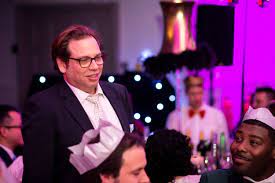Hadar Swersky on the best medications for treating ADHD

Treatment for ADHD is not just about taking medication. There are several other effective treatments that can assist kids with ADHD perk up their ability to pay attention, control impulsive behavior, and restrain hyperactivity. Nutritious meals, exercise and play, learning new coping skills, and enhancing social skills are all part of a balanced treatment plan that can enhance your child’s performance at school, boost their relationships with others, and decrease anxiety and frustration for them and for your entire family.
Hadar Swersky says ADHD is a developmental brain condition that affects the way that an individual thinks, processes emotions, and replies to the environment. ADHD at times is diagnosed during childhood, usually in school settings where symptoms of the condition for instance problems with anger issues, behavioral control, inattention and distractibility are most obvious. There is no known cure for ADHD, but a number of options can help your child manage their symptoms. Treatments vary from behavioral intervention to prescription medication. In most cases, medication alone is an effectual treatment for ADHD. But, Swersky suggests that including other psychotherapeutic interventions are important.
Medication is frequently a significant part of treatment for a kid with ADHD. But, it can be a hard decision to make as a parent. Parents are frequently afraid of pessimistic side effects that the medication may induce, afraid of labeling their child of a disorder that might carry negative consequences in their academic life, or feel ashamed or guilty that their child’s condition was their fault in some way. To make the most excellent choice, you and your child’s doctor must work together to decide whether medication is a good option. If so, ask the doctor whether your child requires medication during school hours only, or on weekends and evenings as well.
You and the doctor should also find out what type of medication may be best. The two main types of ADHD medications are stimulants and nonstimulants.
- Central nervous system (CNS) stimulants are the most normally prescribed ADHD drugs. These drugs work by enhancing the amounts of the brain chemicals called dopamine and norepinephrine. In individuals with ADHD, these types of stimulants generate a paradoxical calming effect. This results in a reduction in hyperactivity and a development in attention span in numerous people. The effect enhances your child’s concentration and assists them focus better.
- Your child’s doctor may think about nonstimulant medications when stimulants have not worked or have caused side effects that your child finds hard to handle. Certain nonstimulant medications work by enhancing levels of norepinephrine in your child’s brain. Norepinephrine is thought to assist with attention and memory.
According to Hadar Swersky, Prospective side effects of stimulants and nonstimulants
Even though medications for ADHD bear some side effects, the doctor can work with you and your kid on the right dose and frequency of the medication. The more common side effects of stimulants and nonstimulants are quite similar, even though they tend to be stronger for stimulants. These side effects can include:
- trouble sleeping
- headache
- nervousness
- stomach upset
- weight loss
- irritability
- dry mouth
Types of treatments can vary from behavioral intervention to prescription medication. Ensure to discuss with your doctor to find out how to best approach your kid’s ADHD, which may comprise several approaches, such as medication and therapy.










